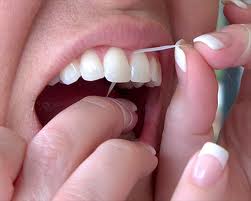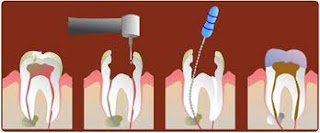Welcome back to our three-part article series on maintaining a high standard of oral health and hygiene. This may sound like an uninteresting topic until you consider the intimate link, or rather inseparable nature of good oral hygiene and the appearance of your smile, say dentists in Silver Spring MD. Everyone wants the social benefits of having beautiful white teeth and pink healthy gums, but just like every other aspect of your appearance, it takes work! Looking after your teeth, however, is important for more than just the maintenance of smile confidence; it’s an integral part of good, healthy living.
In the first installment of this series, dentists in Silver Spring MD discussed good brushing habits and techniques. In the second installment, flossing was explored as an essential component of every home oral hygiene routine and one that is too commonly neglected. In this article, the final of the series, dentists in Silver Spring MD shall present a few other essential recommendations everyone should follow in order to minimize the bacteria in your mouth and maximize your oral health.
Your Bi-Annual Appointments with Dentists in Silver Spring MD
You’ve heard the expression many times before and in few other disciplines does it apply more rigorously than in dentistry: prevention is better than cure. What this idiom doesn’t directly convey is that prevention is also cheaper! Many people cite non-problematic dental health as the reason for missing their bi-annual appointments with dentists in Silver Spring MD: “There’s nothing wrong with my teeth, so why spend the money?”
One of the biggest health problems in the United States is gum disease, say dentists in Silver Spring MD. In fact, according to the Centers for Disease Control and Prevention, an incredible 80% of all Americans present with some stage of this terrible oral affliction. The reason so many people have seemingly severe oral problems and know nothing about it is because the symptoms of gum disease can quite easily be ignored for several years, explain dentists in Silver Spring MD. Bacterial infections of the gums don’t tend to cause pain, which is generally the one symptom that will prompt patients to seek medical attention. Another reason is ignorance. People actually believe that gums that bleed when brushed are normal, say dentists in Silver Spring MD. It’s something they’ve experienced and ignored for so many years, they don’t regard it as a sign of bad oral health.
By going for a check-up and professional cleaning twice a year, dentists in Silver Spring MD can identify problems in their infancy before they have a chance to do permanent damage. What you may regard as normal and healthy may, under the strict scrutiny of dentists in Silver Spring MD, be a severe and potentially tooth-threatening bacterial infection or disease!
Dentists in Silver Spring MD: Other Important Recommendations
Regular and thorough brushing and flossing is the only way to bust bacterial activity in your mouth. Regular check-ups and professional cleanings are also an integral part of the preventative healthcare necessary to keep your pearly whites in tip-top condition. But there’s more! Here are some other important recommendations from dentists in Silver Spring MD:
In the first installment of this series, dentists in Silver Spring MD discussed good brushing habits and techniques. In the second installment, flossing was explored as an essential component of every home oral hygiene routine and one that is too commonly neglected. In this article, the final of the series, dentists in Silver Spring MD shall present a few other essential recommendations everyone should follow in order to minimize the bacteria in your mouth and maximize your oral health.
Your Bi-Annual Appointments with Dentists in Silver Spring MD
You’ve heard the expression many times before and in few other disciplines does it apply more rigorously than in dentistry: prevention is better than cure. What this idiom doesn’t directly convey is that prevention is also cheaper! Many people cite non-problematic dental health as the reason for missing their bi-annual appointments with dentists in Silver Spring MD: “There’s nothing wrong with my teeth, so why spend the money?”
One of the biggest health problems in the United States is gum disease, say dentists in Silver Spring MD. In fact, according to the Centers for Disease Control and Prevention, an incredible 80% of all Americans present with some stage of this terrible oral affliction. The reason so many people have seemingly severe oral problems and know nothing about it is because the symptoms of gum disease can quite easily be ignored for several years, explain dentists in Silver Spring MD. Bacterial infections of the gums don’t tend to cause pain, which is generally the one symptom that will prompt patients to seek medical attention. Another reason is ignorance. People actually believe that gums that bleed when brushed are normal, say dentists in Silver Spring MD. It’s something they’ve experienced and ignored for so many years, they don’t regard it as a sign of bad oral health.
By going for a check-up and professional cleaning twice a year, dentists in Silver Spring MD can identify problems in their infancy before they have a chance to do permanent damage. What you may regard as normal and healthy may, under the strict scrutiny of dentists in Silver Spring MD, be a severe and potentially tooth-threatening bacterial infection or disease!
Dentists in Silver Spring MD: Other Important Recommendations
Regular and thorough brushing and flossing is the only way to bust bacterial activity in your mouth. Regular check-ups and professional cleanings are also an integral part of the preventative healthcare necessary to keep your pearly whites in tip-top condition. But there’s more! Here are some other important recommendations from dentists in Silver Spring MD:
- Eat a balanced meal three times daily
- Avoid snacking
- If you grind your teeth, wear a mouth guard
- Minimize your intake of sugary, carbohydrate-rich foods
- Minimize your intake of sugar-packed acidic fruit juices, sodas and energy drinks
- If you’re thirsty, drink water, advise dentists in Silver Spring MD
- Drink LOTS of water!
- Enjoy alcohol in moderation: it’s high in sugar and enamel-eroding acids
- Rinse regularly with an anti-bacterial mouthwash (alcohol-free)
- Don’t overdo tea and coffee, they contain staining tannins
- Stop smoking! Chewing tobacco is just as bad, warn dentists in Silver Spring MD
- Wear a mouth guard if you play contact sports
- Never use your teeth as tools or for chewing ice
- Eating disorders and drug addictions don’t only wreck your teeth, say dentists in Silver Spring MD; they will wreck your life. Seek immediate professional help.







